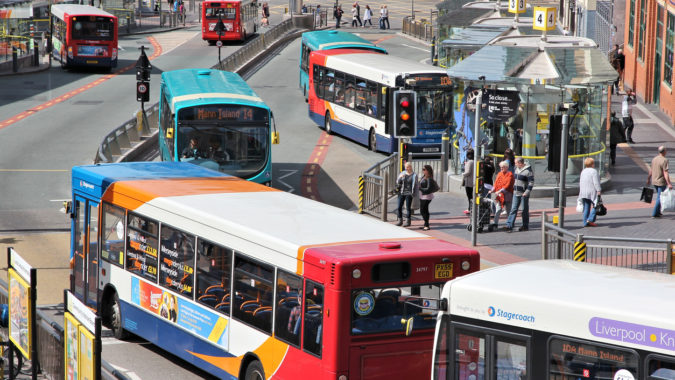Decisions on future rail investment in the North and Midlands should consider factors that capture the wide range of benefits that rail transport into dense cities and towns can bring, according to the National Infrastructure Commission.
The Commission has today published an interim report which sets out the methodology it proposes to use to undertake its review to inform the government’s integrated rail plan for the North and Midlands. This plan, announced by government in February, will set out the sequencing and integration of HS2, Northern Powerhouse Rail, Midlands Rail Hub and other major rail schemes.
While Covid-19 has led to a reduction in journeys on the UK’s rail network, the longer term impact on travelling patterns is unclear and there will remain a need to invest in public transport projects that reduce journey times and improve reliability between key economic centres, while meeting changing commuting patterns, the report notes.
The interim report sets out the Commission’s plans to apply research findings on the particular value of improved rail services in its analysis of various packages of proposed schemes. The Commission intends to focus on how different options would help achieve:
- Economic growth and competitiveness – including improving productivity and improving trade and connectivity between places across the UK and beyond
- Sustainability and quality of life – including increasing access to amenities, improving service reliability, and assessing lifecycle carbon emissions and impact on natural capital.
The report sets out the Commission’s plans to offer government options for packages of proposals that are deliverable, affordable, and that accelerate and maximise benefits to the Midlands and the North. The report notes that the scale of the various projects and the risks of spreading available investment too thinly will mean that strategic choices about prioritisation will need to be made.
The report stresses that it will be for government to decide which of the options, or which combination of proposals, best meets their overall objectives.
Only schemes which have wider regional benefits, and where there is enough reliable evidence for cost and benefits to be assessed, will be considered, the report outlines. The document also notes that maximising the benefits of investments in rail will depend on other factors, including interventions to increase the level of skilled workers.
Chair of the National Infrastructure Commission Sir John Armitt said:
“Our discussions with leaders across the North and Midlands in recent weeks have made clear the desire for improved rail services to support economic growth across communities. We will assess how best to sequence and integrate the various schemes so communities can benefit as soon as possible. Our analysis will seek to reflect the complexities involved, and present government with a menu of options from which they can take informed decisions.”
The report is informed by emerging findings from the Commission’s initial stakeholder engagement process, which found widely shared goals included:
- prioritisation and sequencing – the need to deliver major schemes earlier where possible, integrate major schemes, and address existing challenges on the network;
- local impact – delivering capacity benefits and encouraging local investment;
- resilience and reliability – including addressing bottlenecks;
- providing certainty – to give businesses the confidence to invest and provide certainty to the supply chain;
- environmental impact – ensuring that proposed interventions take account of potential impacts on natural capital and carbon emissions.
The Commission is seeking views on the approach set out in the report. Ongoing stakeholder engagement and social research will help the Commission shape its final analysis, which will be published before the end of 2020.



